U.S. Engineering led the fabrication of the corridor racks, building the steel structures and adding the ductwork, with the racks placed on wheels to roll between assembly stations as other trades added their components. The team collaborated on creating virtual models not only for the components, but also to coordinate the activity of the trades. Prefab crews were able to stay about two weeks ahead of the site installers, who put in place about five racks per day.
"There was much less risk and safety issues with this system," Strait says. "We had zero recordables on the prefabrication work."
U.S. Engineering will continue to use its multi-trade fabrication system on other large projects where that's appropriate and refine it "as we go along," Paulus says.
Service and Solutions
The firm says it is optimistic about the diverse types of work in its portfolio, with more than a 12-month backlog. Among U.S. Engineering's other current projects: the St. Anthony 144th Health Campus, Colorado State University's Animal Sciences Building renovation, Comcast Data Center Phase 2 and several smaller projects.
Recently completed work includes the new bioengineering building at Colorado State University, the NCAR Supercomputing Center in Cheyenne, the JILA addition at CU Boulder and the Crestview Elementary School flood restoration in Boulder.
"We choose work that fits our strengths," Strait says. "There are a lot of people who want to work with firms that have successfully done prefabrication and modularization," he says. "For us, it's not just about the price."
Strait says the firm has refocused its efforts with key clients and is looking more toward some owner-direct projects, rather than working through a general contractor, and more owner service work as well. The firm's service and solutions division has "grown by leaps and bounds" over the past four years, Strait says.
Todd Vonlintel, vice president of service and solutions, says the division has increased its work by more than 50% since 2009, bringing in around $38 million in 2012. "We do a lot of service work, remodels and handle rapid-response requests, including work dropped by other firms," he says.
Remodel work includes boiler and chiller replacements, water component retrofits and plumbing overhauls, like replacing all of the toilets in the student dorms at CU Boulder recently. The service division's clients include Comcast, the University of Denver, Avago Technologies, Larimer County, Children's Hospital and several universities and school districts.
"It helps that we can share the labor pool with our larger jobs and pull our people into the smaller ones for a time," Vonlintel says.
The Colorado offices of U.S. Engineering—in Loveland, Westminster and Thornton, plus its project-specific fabrication shops—employ around 450 people, including an all-union skilled work force that increases as needed when the firm lands larger projects. "It does help that we are a union shop," Strait says. That also means that U.S. Engineering has not yet experienced skilled labor shortages like many specialty and general contractors. "But that could happen, especially as more of those skilled people begin to retire," he adds.
The firm makes good use of its highly trained, experienced personnel to build and maintain its strong rapport with clients. "This is a relationship-driven business," says Vonlintel. "We provide solutions for our clients because we know them and their needs well. We are not just the lowest bidder on the list. On at least 25% to 30% of jobs, we can propose a little different solution for them, offer them something that's not just cheaper, but something more efficient and more useful."






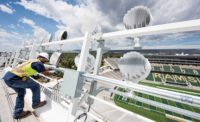
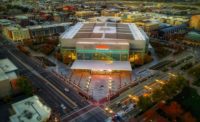
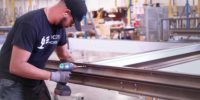
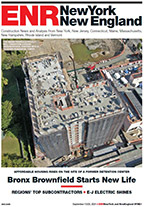
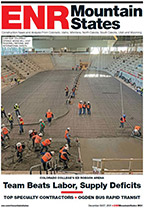
Post a comment to this article
Report Abusive Comment